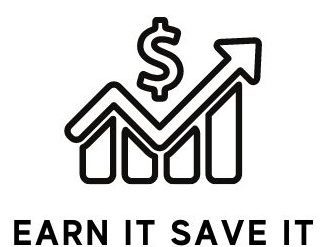Navigating college debt help can be overwhelming, but it’s important to know that there are resources and programs available to help you manage and even reduce your student loan burden. Understanding your options is the first step towards achieving financial freedom and easing the stress that often comes with student loan debt.
One option to explore is loan forgiveness programs, such as Teacher Loan Forgiveness, which can alleviate up to $17,500 in debt for eligible teachers. There are also income-driven repayment plans and consolidation loans that can help make your monthly payments more manageable. Additionally, you should stay informed about any recent changes or relief programs, like those announced by President Biden.
By staying informed and exploring your options, you can take control of your financial future and work towards a more manageable college debt situation. Remember, help is out there – it’s just a matter of finding the right solution for you.
Table of Contents
Understanding College Debt
What is College Debt
College debt refers to the money you borrow to pay for your education, including tuition, fees, room and board, textbooks, and other expenses associated with attending college. This debt usually comes in the form of student loans, which are either federal or private. The average college student debt is almost $25,000, and Americans currently owe a staggering $1.7 trillion in total student debt.
When you graduate, the money you owe on these loans becomes your responsibility to repay, typically in monthly installments. These payments can create a significant financial burden for many young people, affecting their ability to save for their future, buy a home, or start a family.
Causes of Rising College Debt
Several factors contribute to the ever-increasing levels of college debt among students. Some of these include:
- Higher education costs: The cost of attending college has risen significantly faster than inflation, making it more difficult for families to afford to pay for higher education without taking on debt. College expenses include tuition, fees, housing, textbooks, and other costs, all of which have been increasing rapidly in recent years.
- Decreased funding for public colleges and universities: Many state governments have reduced their funding for public colleges and universities, leading institutions to rely more heavily on tuition and fees to cover their budgets. This shift has resulted in higher costs for students and increased reliance on loans to pay for school.
- Insufficient financial aid options: While financial aid opportunities do exist, they are often insufficient to cover the full cost of attendance, leaving students with little choice but to take on loans to make up the difference.
Understanding the nature of college debt and the factors driving its growth is crucial for financial planning and decision-making throughout your college experience. Being aware of these aspects of college debt will help inform your choices when considering how much to borrow and ultimately how to repay your loans, ensuring a more secure financial future.
Implications of College Debt
Effects on Personal Finance
As a student loan borrower, one of the primary challenges you might face is its impact on your personal finances. College debt often translates to higher monthly payments, which can affect your ability to save and invest for the future. In turn, this may lead to a delayed timeline for achieving goals like buying a home, starting a family, or launching a business. Additionally, college debt can result in a lower credit score if you struggle to meet your repayment obligations.
Effects on Mental Health
The burden of college debt isn’t simply financial; it can also have significant consequences on your mental health. Research suggests that carrying a large amount of student loan debt is associated with increased levels of stress, anxiety, and depression. Furthermore, the pressure to repay your loans might lead to feelings of guilt or regret about your chosen field of study if you find it challenging to meet your financial obligations. It’s essential to acknowledge the psychological impact of this financial burden and seek support when needed.
Effects on Economy
Beyond the personal implications, the accumulation of student loan debt also has far-reaching effects on the overall economy. With millions struggling to repay their loans, the amount of disposable income available for spending decreases. This, in turn, can lead to reduced consumer demand and hinder economic growth. Additionally, by affecting the financial stability of individuals and limiting their ability to invest, college debt can create a notable ripple effect across various industries such as housing, business development, and even retirement planning.
Types of College Debt Help
Federal Student Loan Forgiveness
There are several federal student loan forgiveness programs available that can help reduce or eliminate your student debt. These programs typically require you to work in a specific profession or meet certain eligibility requirements. Some examples of federal loan forgiveness programs include Public Service Loan Forgiveness, Teacher Loan Forgiveness, and Perkins Loan cancellation.
Income-Driven Repayment Plans
For borrowers with federal student loans, income-driven repayment (IDR) plans can help make your monthly payments more manageable. IDR plans are based on your discretionary income and family size, which means your payments will be adjusted to fit your financial situation. After making payments under an IDR plan for a set period (usually 20-25 years), any remaining loan balance will be forgiven.
Refinancing Student Loans
Refinancing your student loans can potentially help reduce your interest rate and monthly payments, ultimately saving you money in the long run. When you refinance, you take out a new loan with a private lender and use it to pay off your existing loans. Keep in mind that refinancing federal student loans with a private lender means you’ll lose access to federal benefits like loan forgiveness programs and income-driven repayment plans.
Debt Consolidation
Consolidating your student loans can simplify your payments by combining multiple loans into a single loan with a fixed interest rate. For federal student loans, you can apply for a Direct Consolidation Loan through the U.S. Department of Education. Debt consolidation has the potential to lower your monthly payment by extending your payment term, but it might also increase the total amount you pay over time due to longer repayment duration.
College Debt Help to Avoid Debt from the Start
Choosing the Right College
When planning for college, it’s essential to choose the right college, as tuition costs can vary significantly. Consider factors such as location, size, and program offerings when making your decision. Keep in mind that public universities often have lower tuition rates than private institutions. Furthermore, it’s essential to research and compare costs at various colleges before deciding.
Budgeting and Saving
Effective budgeting and saving during your college years can help you minimize debt. Create a budget to manage expenses, such as tuition, books, room and board, and day-to-day living costs. Stick to your budget and actively look for ways to save money, such as buying used textbooks, taking advantage of student discounts, or opting for a more affordable housing option.
Exploring Scholarships and Grants
Applying for scholarships and grants can significantly reduce your need for student loans and help you avoid debt. There are numerous scholarships available based on factors such as academic merit, leadership, and community involvement. Research and apply for relevant scholarships and grants to increase your chances of securing financial aid. Utilize available resources to ensure you’re not missing out on possible opportunities to fund your education without relying on loans.
Role of Government in Handling College Debt
Government Policies
The U.S. federal government has played a significant part in both creating and addressing the issue of high student loan debt. By providing guaranteed student loans, they have aimed to make higher education more accessible to a wider population. However, this approach has led to a massive $1.7 trillion in student loan debt.
The Pell Grant program, for example, offers financial aid to low-income students to help cover tuition and other education-related expenses. This grant does not need to be repaid, reducing the overall student debt burden. Additionally, the federal government offers income-driven repayment (IDR) plans that allow borrowers to set their monthly payments based on their income and family size.
Future Reforms for College Debt Help
As you consider your options for college debt help, it’s essential to stay informed about potential future reforms in government policies. Some proposed reforms include:
- Expansion of Pell Grants: Increasing the funding and eligibility for Pell Grants would provide more low-income students with better access to higher education without adding to their debt.
- Student Loan Forgiveness: Some government officials support forgiving a portion of federal student loan debt, which could help reduce the financial burden on millions of borrowers.
- Tuition-Free College: A few proposed plans advocate for making public colleges and universities tuition-free, which could eliminate the need for many students to take on debt in the first place.
Though these reforms are not guaranteed, it’s crucial to keep an eye on possible policy changes that may affect your college debt situation. By remaining knowledgeable and proactive, you can stay ready to adapt to new developments in the landscape of college debt assistance.
Photo by Dollar Gill on Unsplash
Frequently Asked Questions
What are the common debt relief options for student loans?
There are several debt relief options available for student loans. Some common options include income-driven repayment (IDR) plans, Public Service Loan Forgiveness (PSLF), Teacher Loan Forgiveness, and loan consolidation. In addition, there are specific loan forgiveness programs that might suit your particular profession or situation.
How can student loan consolidation benefit me?
Student loan consolidation can help simplify your loan repayment process by combining multiple federal student loans into a single loan. This allows you to make just one monthly payment instead of multiple payments to different loan servicers. Additionally, consolidating your loans could potentially lower your monthly payment amount by extending your repayment term.
Which repayment plans are available for student loans?
Several repayment plans are available for federal student loans. Some of these include Standard Repayment, Graduated Repayment, Extended Repayment, and IDR plans such as Pay As You Earn (PAYE), Revised Pay As You Earn (REPAYE), Income-Based Repayment (IBR), and Income-Contingent Repayment (ICR). Each of these plans has particular benefits and eligibility requirements, so it’s important to review them carefully to determine the best fit for your financial situation.
Who is eligible for Public Service Loan Forgiveness?
To be eligible for PSLF, you must work full-time for a qualifying employer, such as a government organization, non-profit organization, or other qualifying public service entity. You also need to make 120 qualifying monthly payments under an approved IDR plan while working for the eligible employer. Meeting these requirements could ultimately result in forgiveness of the remaining balance on your Direct Loans.
Does the student loan pause impact all borrowers?
No, the student loan pause, which was implemented as part of the federal government’s response to the coronavirus pandemic, does not impact all borrowers. The pause applies to those with federal student loans held by the U.S. Department of Education. It’s important to check with your loan servicer to determine if your specific loans are eligible for the pause.
How do recent updates affect student loan forgiveness?
Recent updates and proposed changes to student loan forgiveness programs may impact your eligibility and the amount of forgiveness you may receive. For example, the Biden-Harris plan would provide some level of forgiveness for borrowers meeting specific income requirements. Always stay informed about updates to student loan forgiveness policies, as they could directly impact your financial situation.


